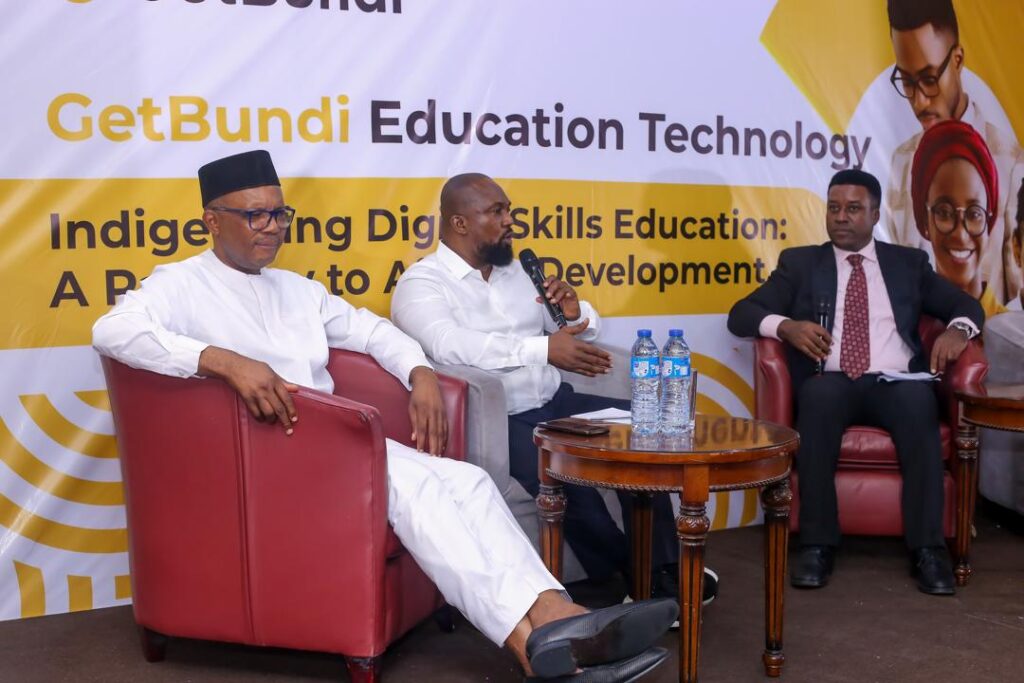
At 90, it is fitting to say Anyaoku has had a life of remarkable global impact. He has not only contributed to the blackman’s struggle for liberation, he has defended the integrity of African identity. And at such a remarkable age, the nonagenarian has distinguished himself as one of the few Nigerians who have remained stately in their character. The former secretary general of the Commonwealth represents the true essence of a public intellectual and leadership.
A testimony to such is the encomium the late President of South Africa Nelson ‘Rohilla’ Mandela poured on Anyaoku as a ‘Master of Quiet Diplomacy’.
Mandela wrote the foreword of Anyaoku’s biography, Eye of Fire authored by Phyllis Johnson as well as to Chief Emeka Anyaoku’s memoirs, The Inside Story of the Modern Commonwealth.
Mandela had said Anyaoku “brings to the international arena that great African tradition of consensus building, that has positioned him in a key role as builder of bridges across people and nations.”
President Muhammadu Buhari, in his tribute, described Anyaoku as a diplomat who projected Nigeria’s greatness through his vision and diligence.
He said, “I acknowledge the worthy contributions you have made to the development of the country, starting out as a young Foreign Service Officer, and reaching the pinnacle of your career as Secretary-General of the Commonwealth, through vision and diligence, and consistently projecting Nigeria as a great nation.
“Thank you for your statesmanship, and for using your extensive network of international friends to support the country’s efforts in deepening good governance, democracy and sustainable development.”
The presidential candidate of the Labour Party, Peter Obi, also, in his goodwill message, said: “As the Secretary-General of the Commonwealth of Nations, you presented the image and identity of a true Nigerian, championing the cause of good governance and promoting the entrenchment of democracy throughout the Commonwealth and the world at large.
“I recall too, how you fought doggedly for the return of democracy in Nigeria in 1999 and for the military to disengage from governance, deploying your position as the Secretary-General of the influential British Commonwealth of Nations. Nigeria owes Your Excellency a debt of gratitude.
“I have no doubt in my mind that Nigeria still needs your experience and invaluable contributions for her to navigate the forthcoming elections and other governance issues challenging the country.”
EMEKA, the moniker he had become associated with, after his secondary education, in 1952 proceeded to teach at Emmanuel College, Owerri, in the then Eastern Region, he was there until mid-1954 lecturing in mathematics, Latin and English.
He was reputedly an assiduous young teacher, meticulous in preparing his lesson notes. He gave back to his students the best of what he had learned at Merchants of Light School (MOLS) at Oba,while injecting humour into his teachings.
One of his teachers at MOLS had kindled in him an interest in the Classics. His Latin teacher had inspired in him a love for the languages, laws and culture of the ancient Greeks and Romans, and the classical roots of the English language. Emeka then decided to study Classics at the new University College of Ibadan, the premier higher institution of its kind in the country, which had been instituted in 1948 as an overseas college of the University of London.
Emeka, in 1959, obtained a London University Honours Degree in classics as a college scholar and joined the Commonwealth Development Corporation (CDC) in Lagos. The corporation sent him as an Executive Trainee to the CDC headquarters in London from where he went on a course at the Royal Institute for Public Administration in London. He later joined the Commonwealth Development Corporation.
In early 1962, he came in contact with the then Prime Minister of Nigeria, Sir Abubakar Tafawa Belewa. He had accompanied his visiting boss, Lord Howick, Chairman of the Commonwealth Development Corporation, to a meeting with the Prime Minister on the activities of the corporation in Nigeria and the West African region.
The Prime Minister, impressed by Anyaoku’s answers to some of his questions on the projects supported by the CDC in West Africa, took an interest in his future and persuaded him to consider joining the Nigerian Foreign Service.
After a grueling interview by the Federal Civil Service Commission, he was offered an appointment in the Foreign Service in April 1962.
Within a month of his entry, he was appointed Personal Assistant to the Permanent Secretary of the Ministry for External Affairs. There he was closely involved in the process that led to the establishment of the Organisation for African Unity (OAU) in May 1963. Following Nigeria’s independence, he joined Nigeria’s diplomatic service, and in 1963 was posted to its Permanent Mission in the United Nations in New York.
In 1966, he joined the Commonwealth Secretariat as Assistant Director of International Affairs and in 1977, he was elected as Deputy Secretary-General.
However, in 1983, Nigeria’s civilian government appointed Anyaoku to become Nigeria’s Foreign Minister. After the overthrow of the government by the military later that year, he returned to his position as Deputy Secretary-General with the support of the new government in Nigeria and the endorsement of all Commonwealth governments.
At the Commonwealth Heads of Government Meeting at Kuala Lumpur on October 24, 1989, he was elected the third Commonwealth Secretary-General. He was re-elected at the 1993 CHOGM in Limassol for a second five-year term, beginning on 1 April 1995.
Apart from striving to strengthen intra-Commonwealth relations and promoting democracy and good governance, one of the major projects he tackled during his tenure was the establishment of democracy in South Africa. He tirelessly championed and spoke in favour of the struggle to rid South Africa of Apartheid.
In 1990, on the release of former President Nelson Mandela from Pollsmoor Prison, Anyaoku hosted Madiba to his first official dinner as Commonwealth Secretary-General in London. Between November 1, 1991 and November 17, 1993, he visited South Africa 11 times, using his diplomatic skills to help in breaking deadlocks in the negotiation process that brought the end of apartheid in South Africa.
In 1998, in recognition of his contribution to the transition in South Africa, and the manner in which he had championed the cause of the progressive movements in Southern Africa, the President of South Africa accorded him the rare honour of addressing a joint sitting of the South African Parliament.
He was involved in numerous interventions to broker peace between several Commonwealth leaders and opposition parties in their countries. He also initiated the use of Commonwealth observer groups to assist elections in various countries.
APART from exerting beneficial influence on the electoral process, the presence of Commonwealth observers made it easier for the parties who had lost to accept the result, if the election was judged by Commonwealth observers to be free and fair. In his 10 years as Secretary-General, he sent 51 election observer groups to various Commonwealth countries.
Beginning with President Kaunda in 1991, he intervened to help Zambia and several other Commonwealth nations to transit from one-party state or military regime to multi-party democracies. For example, he in the same year, persuaded President Arap Moi of Kenya to have a constitutional expert come and help the country revise its constitution to adapt it to the requirements of a multi-party democracy and thereafter in early 1992, persuaded the three opposition parties leaders who had rejected the result of the presidential elections to accept it thereby saving the country from a serious political crisis.
These interventions were not limited to Africa. His intervention in Bangladesh was another example that demanded a lot of time and patience.
He also intervened in Pakistan during a potentially destabilizing disagreement between the then President, Mr. Farooq Leghari and the Prime Minister, Nawaz Sharif.
The most challenging of his interventions was the crisis in his country Nigeria that followed the annulment of the June 12, 1993 presidential election by the then military junta of General Ibrahim Babangida.
ON his retirement, the University of London established a professional chair at its Institute of Commonwealth studies named after him, the Emeka Anyaoku Professor of Commonwealth Studies. He was also invited to be a Distinguished Visiting Fellow at the Centre for the Study of Global Governance, London School of Economics (2000-2002).
He was awarded the Freedom of the City of London in 1998 and has received decorations from Nigeria CFR and CON, and the highest national civilian honours of Cameroun, Lesotho, Madagascar, Namibia and Trinidad & Tobago’s Trinity Cross (TC) as well as Honorary Knight Grand Cross of the Royal Victorian Order (GCVO) from her Majesty, The Queen in 2000.
He was one of the 50, and also one of the one hundred individuals who were awarded special gold medals for outstanding contribution to the country’s development by the Federal Government in the celebrations of Nigeria’s independence Golden Jubilee in 2010 and Centenary in 2014.
Installed in 1980 as the Ichie Adazie of Obosi, Chief Anyaoku has continued to fulfill the duties of the office of a traditional Ndichie chieftainship in Obosi.
The Ichie Anyaoku has been married to Princess Bunmi Anyaoku since 1962. Princess Anyaoku is an Omoba of Abeokuta, Nigeria. Of their marriage, it was written in the Nigerian Sunday Times, then the widest circulating newspaper in the country, that it was a wedding of one of Nigeria’s most eligible bachelors and a beautiful young Princess educated in an English boarding school and Pitman College, London.
In 1990, the heads of all the 19 communities of the Idemili Clan in his home State of Anambra accorded Anyaoku a unique honour by investing him with the title of Ugwumba Idemili. His wife, Bunmi, is also a chieftain – Ugoma Obosi and Idemili – in her own right, with a long involvement in welfare work in Nigeria and in the Commonwealth.













